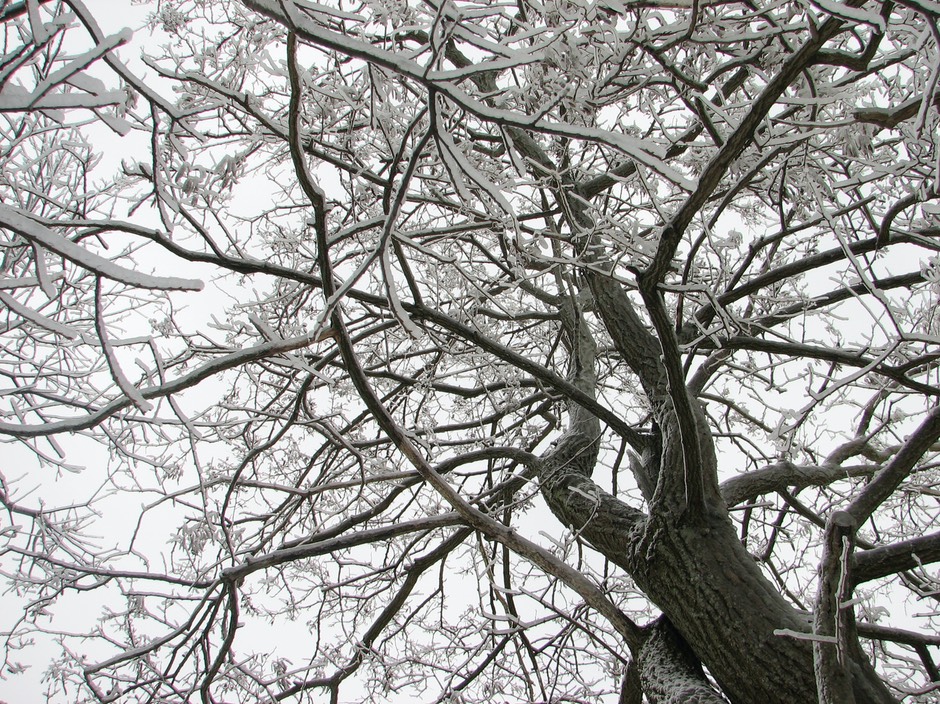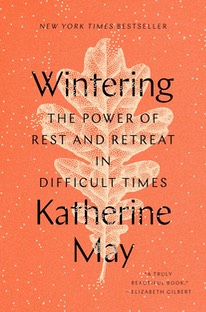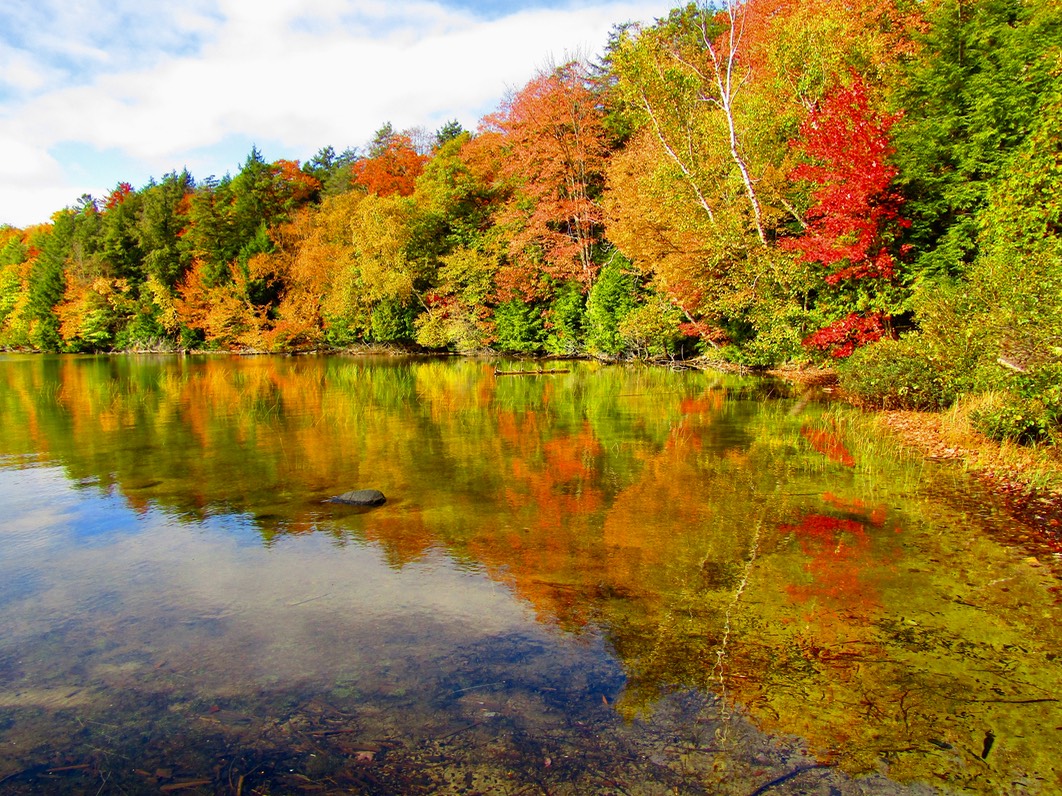As I sit and write today my attention is stolen by movement in my periphery. Out the window in front of me bright yellow maple leaves are falling swept away by a cold November wind. We’re supposed to get mixed precipitation today, that’s a special Canadian blend of rain, freezing rain and snow. Our winter is coming and preparations are underway.
Nature is on the move, too, migrating, storing, and dying. Everything is either accelerating or slowing down. Some things are rushing about to put in seed for the next generation. A monarch butterfly in a field full of goldenrod is urgent on tissue-thin wings of black and orange to gather the surging sweetness before the frost locks it away. Apple trees and tangles of muscadines hang heavy. -J. Drew Lanham
Our Canadian winters are something to experience. The season is pervasive throughout the country yet within each province and even depending where you are in that province the winter season has its own nuances. In Winnipeg the cold is different, dry and frigid to the point the snow crunches loudly under your feet compared to the wet slosh and chill to the bone cold that is in southern Ontario.
I know what winter's about, too many nights, not enough days. I watch the birds fly south and, no, I don't wave- Good Downie, The New Maybe

The reason I bring this up is to share thoughts about how ‘seasons’ provide a useful metaphor for thinking about distress. This led me to author Katherine May who unpacks the metaphor in her wonderful book Wintering: The Power of Rest and Retreat in Difficult Times. As a side note I came to find the book through a thought provoking blog series by Maria Popova called The Marginlian. May offers her thoughts while sharing a personal journey through the seasons of her own life. Much more than the title implies though, May is setting out a reconceptualization of distress and a framework for the meaning of despair and emotional difficulty.

Wintering is a season in the cold. It is a fallow period in life when you’re cut off from the world, feeling rejected, sidelined, blocked from progress, or cast into the role of an outsider. Perhaps it results from an illness or life event such as a bereavement or the birth of a child; perhaps it come from a humiliation or failure. Perhaps you’re in a period of transition and have temporary fallen between two worlds. Some winterings creep upon us more slowly, accompanying the protracted death of a relationship, the gradual ratcheting up of caring responsibilities as our parents age, the drip-drip-drip of lost confidence. Some are appallingly sudden, like discovering one day that your skills are considered obsolete, the company you worked for has gone bankrupt, or you partner is in love with someone new. However it arrives, wintering is usually involuntary, lonely, and deeply painful. (p10.)
…wintering is a metaphor for those phases in our life when we feel frozen out or unable to make the next step, and that that can come at any time, in any season, in any weather; that it has nothing to do with the physical cold. -May in Tippett (2021)
It’s a time for reflection and recuperation, for slow replenishment, for putting your house in order. (14.)
What if we see people as coming to SST or therapy in general in the ‘winters’ of their lives. They’re wintering! They come for assistance through this season of life, seeking the first sign of the new spring, a sprout of hope, a little more daylight that signals a time for revised action.
With distress seen as a season, our winters are an important reminder of the recurrent cyclical rhythm of life. The cyclical rhythm of the seasons is counter to a “…dominant cultural narrative of self-improvement, with its ethos of linear progression toward states of ever-increasing flourishing” (Papova, 2021). This Capitalistic notion has infiltrated the therapeutic conversation reflected in popular practices of setting goals to be achieved, the accumulation of resources to handle difficulties, and comparison to normative scales.
…we are in the habit of imagining our lives to be linear, a long march from birth to death in which we mass our powers, only to surrender them again, all the while slowly losing our youthful beauty. This is a brutal untruth. Life meanders like a path through the woods. We have seasons when we flourish and seasons when the leaves fall from us, revealing our bare bones. Given time, they grow again. (p 68.)
To know life’s winters is also to know its warming springs, blooming summers and the changes of fall. In practice, to know distress is to know non-distress, those times when things were a bit better and thoughts about self were more preferred. These times are found in the non-winter periods of life and are the clues to how to carry on and get through.
To know distress as a season is also to know that it will one day pass. It is not a permanent static state or fixed identity as the medicalizing of distress may try to have one believe.
…befriending this cyclical rhythm of our inner lives, May observes with life-tested clarity, is the key to wintering — to emerging from the coldest seasons of the soul not only undiminished but revitalized -Popova
Distress as a winter and the action of wintering open useful realms for inquiry. As May notes, we can seek to find the wisdom in peoples wintering. Learn how it may be a time of self-renewal, and how it contrasts to the other seasons of life.
Plants and animals don’t fight the winter; they don’t pretend it’s not happening and attempt to carry on living the same lives that they lived in the summer. They prepare. They adapt. They preform extraordinary acts of metamorphosis to get them through. (p14.)

What if we thought of what you are describing as being in one of the winters of life, what would you need to do to weather this season? What would be important to remember as you winter? What might this experience be giving to you or suggesting about what isn’t sitting right for you in your life (certain expectations, or negative attitudes towards themselves)? What about this relationship no longer fits with your hopes or dreams?
What are you learning about yourself as you experience this? What adjustments have you had to make during this season of life? What have you done to assist you through the previous winters of your life? What have you learned about yourself in re-emerging from those past winters?
Is this a hibernation of sorts? What is it protecting you from? What is this rest giving to you and making possible? How will you know when it is time to re-emerge and step back into life, what would be the first sign to you to begin this?
If you thought of yourself as a tree, can you draw me a picture of you in your winter, your spring, summer and fall? Even though your winter tree is skeletal what is growing and readying to re-emerge? What is readying to renew in that time?
When do you experience life in more preferred ways? What are you knowing differently about yourself in those times? What are you doing differently in those times? If you were to give that season of life a name, which season would you assign?
What are the signals to you that a winter is coming? How do you prepare yourself for those times? What is important to remember going into a winter? What is it important to do? Who in your life is it important to keep a connection with through that season?
Imagine the many different ways to make meaning in these conversations. Other worldly seasons may fit as well- monsoon season, hurricane season contrasted to more settled times. Here leaves continue to fall and our winter season is coming. The cycle continues.
References:
Lanham, J. D. (2017). The home place: Memoirs of a colored man's love affair with nature. Milkweed Editions.
Popova, M. (2020). Wintering: Resilience, the Wisdom of Sadness, and How the Science of Trees Illuminates the Art of Self-Renewal Through Difficult Times [web log]. Retrieved November 14, 2021, from https://www.themarginalian.org/2021/03/06/wintering-katherine-may/ .
Tippett, K. (2021, January 21). Katherine May How ‘Wintering’ Replenishes. On Being with Krista Tippett. other. Retrieved November 14, 2021, from https://onbeing.org/programs/katherine-may-how-wintering-replenishes/
Images taken by Grace Cooper